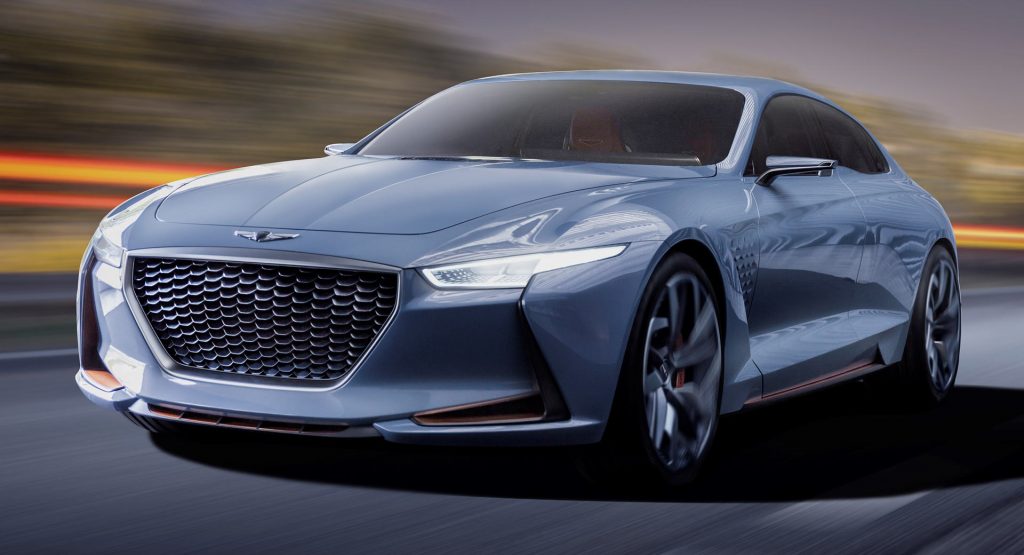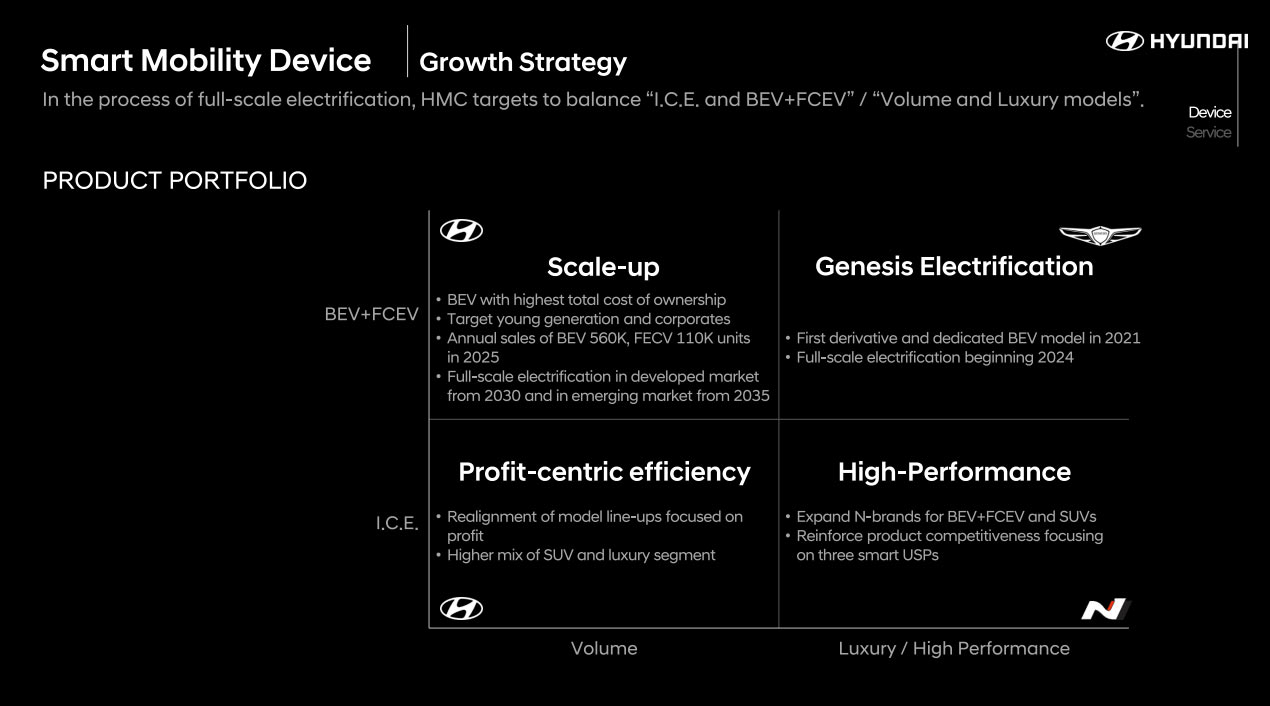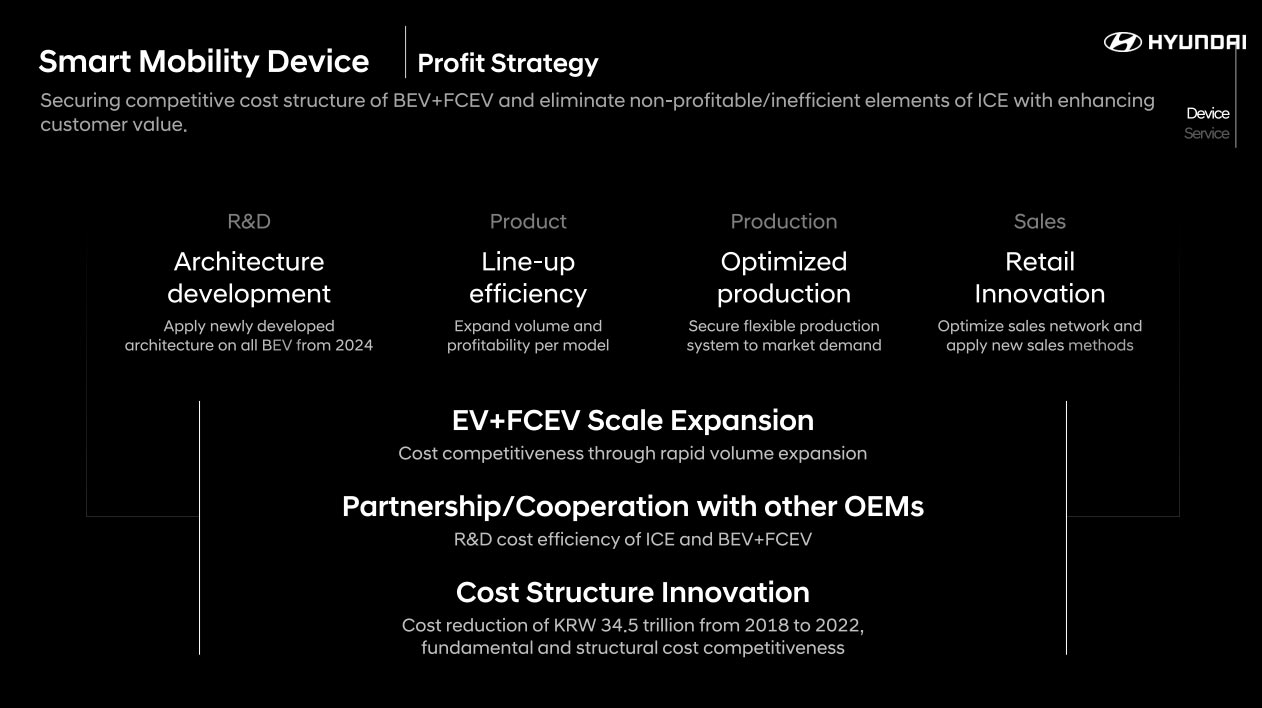The Hyundai Motor Group has unveiled its new roadmap which aims to turn the company into a “smart mobility solution provider” by 2025.
Dubbed Strategy 2025, the plan calls for Hyundai to “expand beyond automobiles” and produce last-mile mobility products as well as personal air vehicles better known as a flying cars.
The plan didn’t go into too many specifics, but called for “balanced and steady growth with a portfolio that takes into account various regional and product needs.”
That’s pretty vague, but electric vehicles are a cornerstone of the plan. By 2025, the company wants to sell 560,000 EVs and 110,000 FCVs annually. That’s just the start as Hyundai will electrify most new models in key markets – such as China, Europe, South Korea and the United States – by 2030. Emerging markets, such as Brazil and India, will follow suit by 2035.
Also Read: Genesis To Launch Tesla-Rivalling Electric Car Within Two Years
The company was tight-lipped about future EVs, but Hyundai said they will target young consumers and enterprise customers with affordable electric vehicles. Genesis will also launch its first EV in 2021, before expanding its electric lineup in 2024. Hyundai’s N performance sub-brand will also embrace EVs as well as crossovers.
As part of the shift to electric vehicles, Hyundai will create a dedicated modular platform. Little is known about it, but it will be a global architecture that enhances “efficiency and scalability.” The first models based on the platform are slated to arrive in 2024 and could be from Genesis judging by the timing.
Hyundai will also plans to have Level 2 and Level 3 semi-autonomous driving systems available in all models by 2025. The company also aims to have a fully autonomous driving system in mass production by 2024.
In the future, we can expect more “differentiated vehicle features.” What that means remains unclear, but the company hopes this will improve the perception of the brand as well as reduce spending on incentives.
Speaking of cuts, Hyundai wants to increase profitability and one slide hinted at partnerships with other automakers. It suggested the company could team up on internal combustion engines as well as electric and fuel cell powertrains.
Despite some potential cuts, the company is planning to invest 61.1 trillion KRW ($51 / £39 / €46 billion) into research and development over the next five years.







